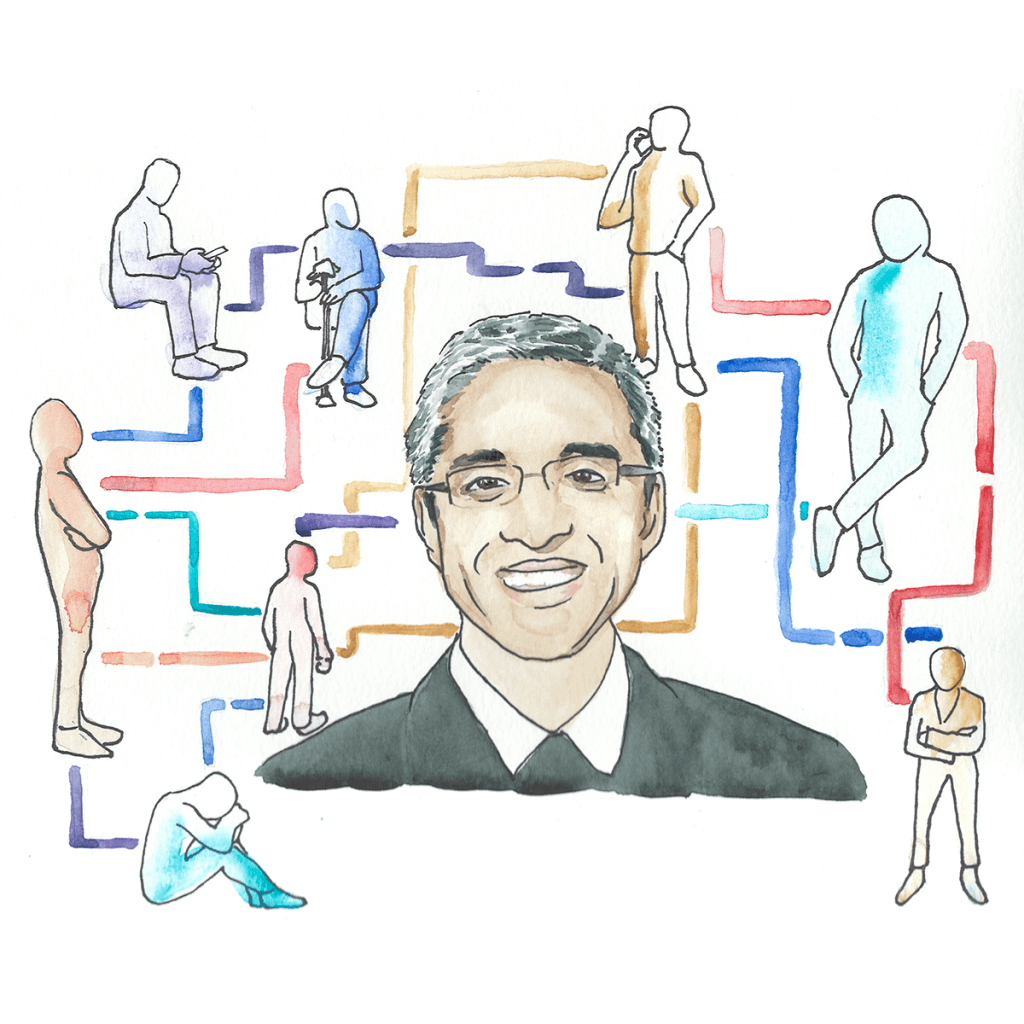Discussion Questions for Vivek Murthy: The Loneliness Epidemic

Listen to Kate’s conversation with Vivek Murthy, here.
1. Dr. Vivek Murthy learned from a young age that being a doctor was not primarily about fixing people but witnessing people. Who has been an important witness to your story?
2. Some of Dr. Murthy’s patients have shared that they don’t have anyone who they can authentically talk to or feel seen by in their life. As one of Dr. Murthy’s friends put it, “To be loved is not enough. You have to both be loved and to be known.” Do you feel known? What keeps you from opening up?
3. When Dr. Murthy became the 19th Surgeon General of the United States, he began his service with a listening tour. He was struck by how willingly people opened up when asked. He was also struck by how behind stories of addiction, abuse, or violence, there were stories of real loneliness. When has someone shared a story of loneliness with you? What prompted their story? How did you become a partner in their story?
4. Loneliness is both common and consequential. It’s an epidemic that, according to surveys, affects around 20% of adults in the United States and impacts our health outcomes, work engagement, and school performance. Does this number surprise you? Does this number compel you?
5. There are a number of reasons why loneliness—which has always been a struggle—is so ubiq-uitous now. We’re more mobile, for starters. And we also have more technology that can dilute or substitute higher-quality interactions. To what do you attribute the loneliness epidemic? How has mobility, technology, or something else impacted your ability to make durable connections?
6. It took Kate a long time to share her own struggles with loneliness because it felt like admitting she was unpopular. What cultural stigmas have you noticed around the topic of loneliness? How do you think your race, gender, or age has affected your ability to talk truthfully about it?
7. Dr. Murthy’s physical therapist once said to him, “Strength is the padding that you need in life. It makes you less susceptible to injury.” What’s one relationship in your life right now that gives you strength? How has it been a cushion against pain? How can you be a cushion for someone else?
8. We begin and end with so much fragility—like little jelly beans, Kate says. And yet the great irony is that the thing that affords us the greatest ability to connect—our fragility—is the thing we’re most afraid to share. What’s something small that helps you overcome this fear when you’re struggling to connect?
9. To address the loneliness epidemic, Dr. Murthy says we will have to ask deeper questions about life, its purpose, and our obligation to one another. What question do you think is part of the solution?
10. “At the heart of our ability to connect deeply with others is our ability to connect deeply with ourselves,” Dr. Murthy reflects. How will you commit to let love in today?
Bonus: After listening to this week’s podcast, what part of Kate and Dr. Murthy’s conversation resonated with you most? What insight will you carry with you?
Discussion Questions written by author, editor, and facilitator Erin S. Lane.
Subscribe to Everything Happens wherever you listen to podcasts.


